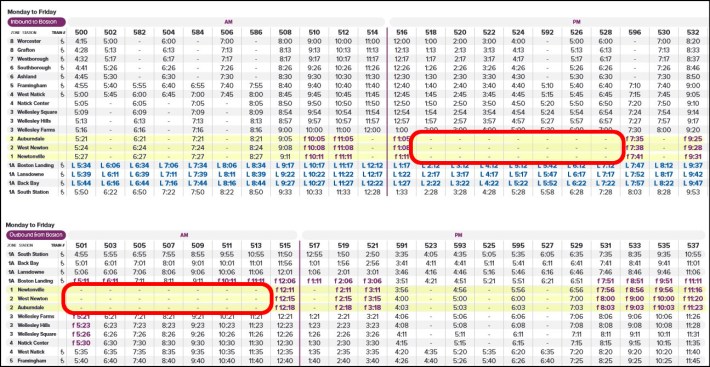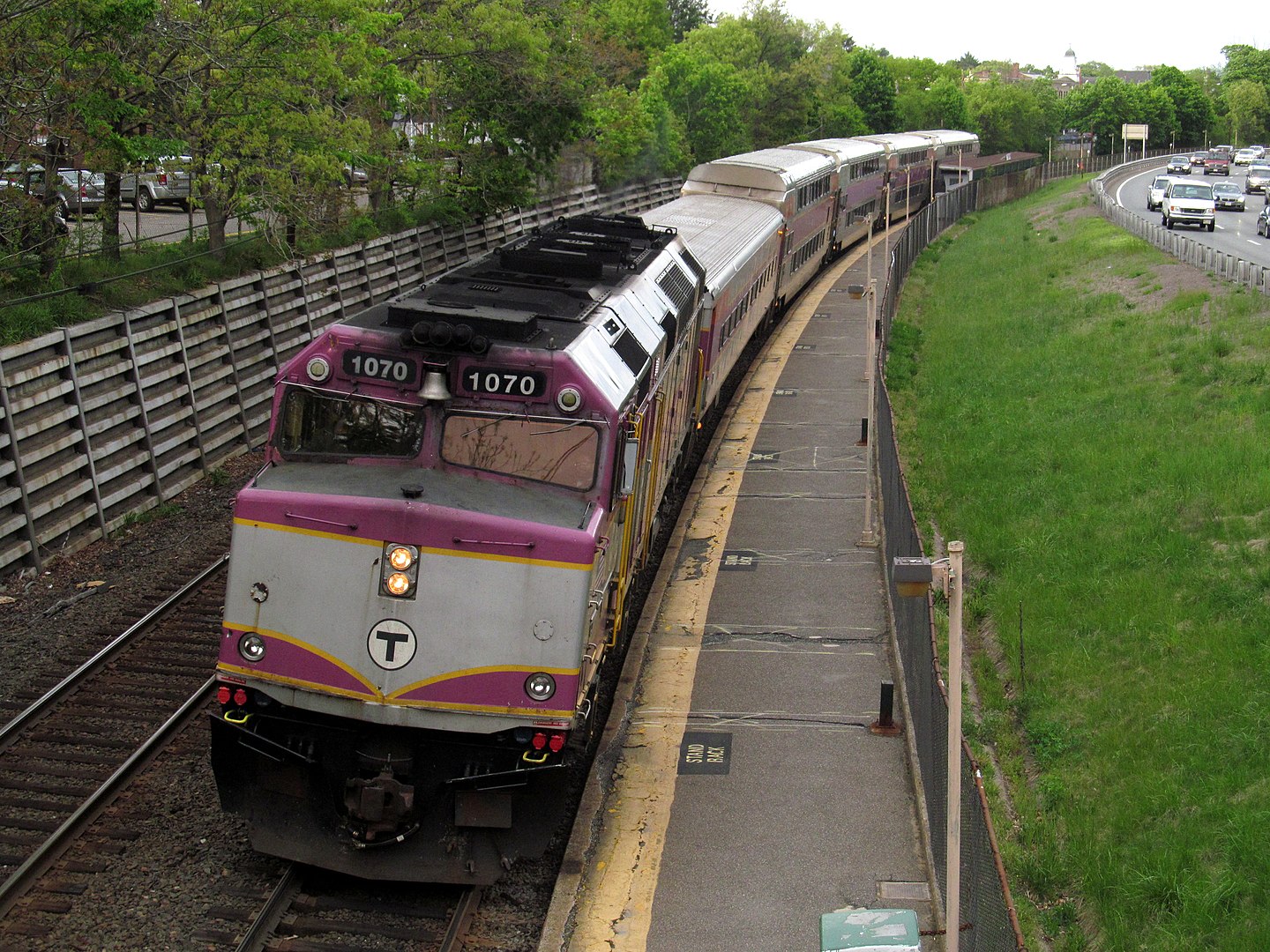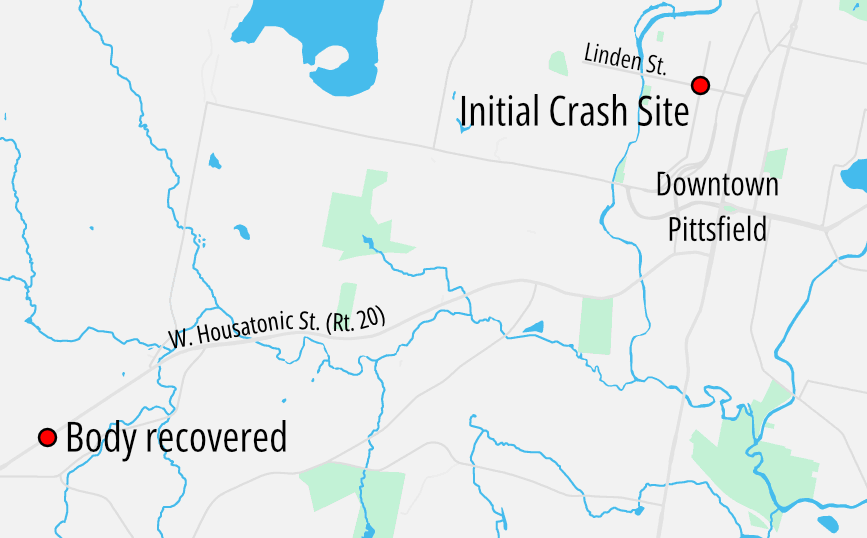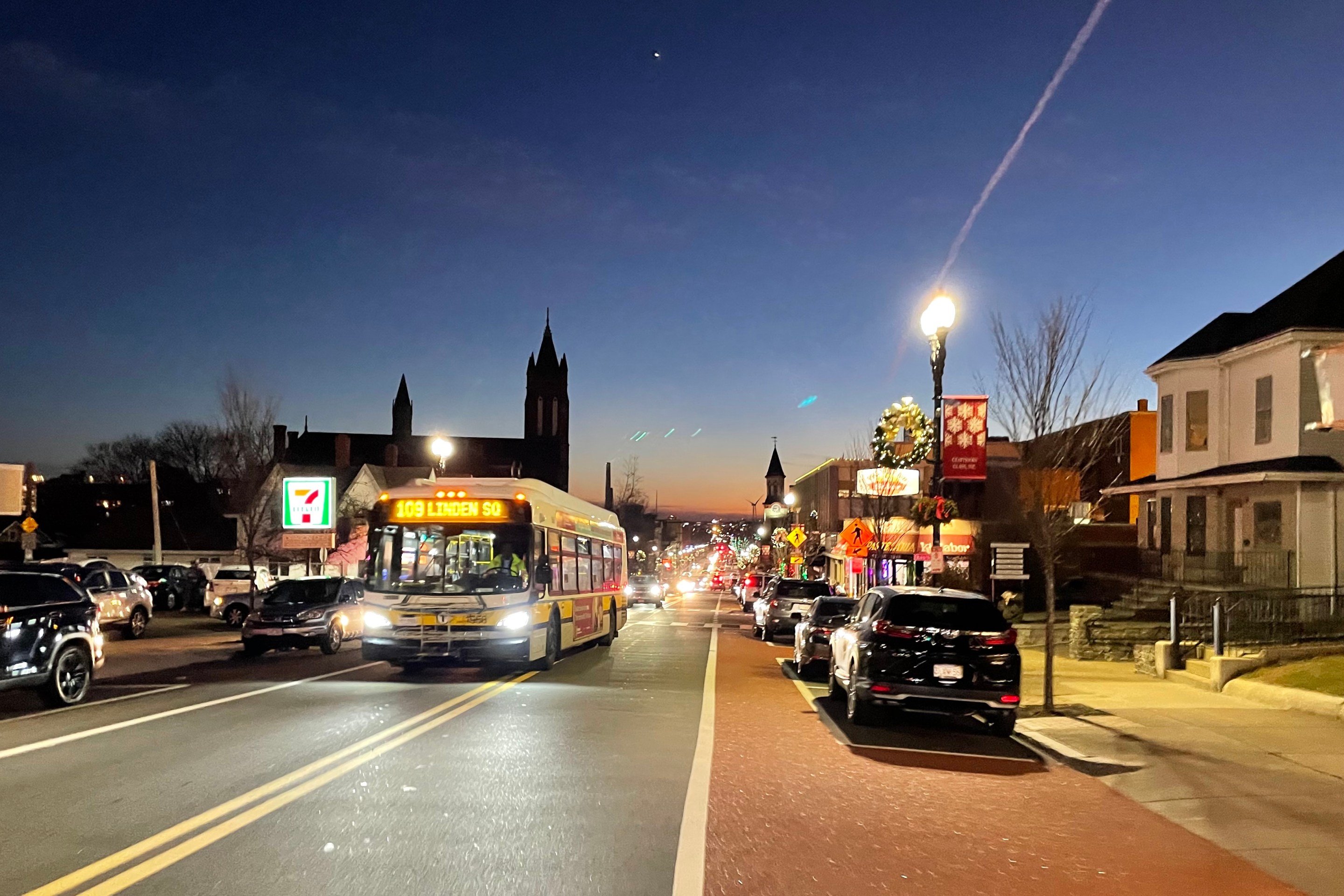The MBTA is planning improvements to the City of Newton's three rail stations to add additional platforms that can serve inbound and outbound trains at the same time – a major shift from earlier plans that would have retained the stations' current single-platform configuration, which forces many Worcester Line trains to pass through the city without stopping.
Currently, the three MBTA rail stations in Newton - at Auburndale (pictured above), West Newton, and Newtonville - each feature a single low-level boarding platform crowded between the tracks and the Massachusetts Turnpike.
None of the stations comply with the Americans with Disabilities Act (ADA), and their low platforms increase train boarding times significantly relative to more modern high-level platforms, which allow passengers to board trains without stairs.
The stations' single-platform layout also causes other inconveniences: because passengers only have access to one track, trains that are traveling in the opposite direction can't stop in the City of Newton.
As a result, the Worcester Line train schedule has large gaps in service for these three Newton stations: it's impossible to catch a train towards Worcester anytime before noon, or to catch a train towards Boston for most of the afternoon and evening.

For several years, the MTBA has been planning upgrades to the Newton stations to bring them into compliance with the ADA. But as recently as 2019, those plans were focused on rebuilding only a single platform at each station, to the dismay of transit advocates and Newton officials.
In a July 2019 presentation, the T defended the single-platform design as the one that could address the stations' accessibility issues "at the least cost."
Since then, though, the MBTA's governing board endorsed a new "rail vision" that called on the T to transition its suburban rail lines to a more frequent, all-day "regional rail" service model.
"The original single-side design concept was presented prior to Rail Vision, and would not support the high frequency bi-directional service goals," explained an MBTA spokesperson earlier this week.
The shift in strategy followed a meeting in June between the MBTA General Manager Steve Poftak, acting MassDOT Secretary Jamey Tesler, Newton Mayor Ruthanne Fuller, and several other Newton officials.
Fuller told StreetsblogMASS on Friday that Poftak and Tesler agreed at that meeting that the state would fund the full design of the three stations with the two-platform layout.
"I’ve stood up and spoken out for these improvements, and have been joined by many of Newton’s elected officials and transit advocates in these calls," Fuller told StreetsblogMASS in an emailed statement on Friday. "It’s exciting to have this green light, even knowing we still have a long way to go nailing down the funding for the construction and living through the years of work."
Fuller also noted that the City of Newton is trying to accommodate more transit-oriented development in the Washington Street corridor that runs parallel to the rail line; in recent years, two large mixed-use projects have gone up around the Auburndale station, and another 302-unit residential development nearby is currently seeking planning approvals.
"We're thrilled to see the T commit to a plan that allows bi-directional service. All commuter rail projects going forward must take into account the kind of system we want to build," said Jarred Johnson, the executive director of TransitMatters, after learning of the T's decision earlier this week.
TransitMatters had been advocating alongside local officials for two-platform stations since early 2017.
To date, the state hasn't yet committed any construction funds for actually building the new stations. A T spokesperson says that the project could be ready to break ground in 2023 if state officials and legislators can appropriate funds for the project.
This story was updated at 3:30 p.m. on Friday, Sept. 24 to correct the date from which TransitMatters had started advocating for two-platform stations. A previous version stated that the organization's advocacy had begun in 2018; in fact, some TransitMatters advocates had started writing about the issue in early 2017 (here and here).






